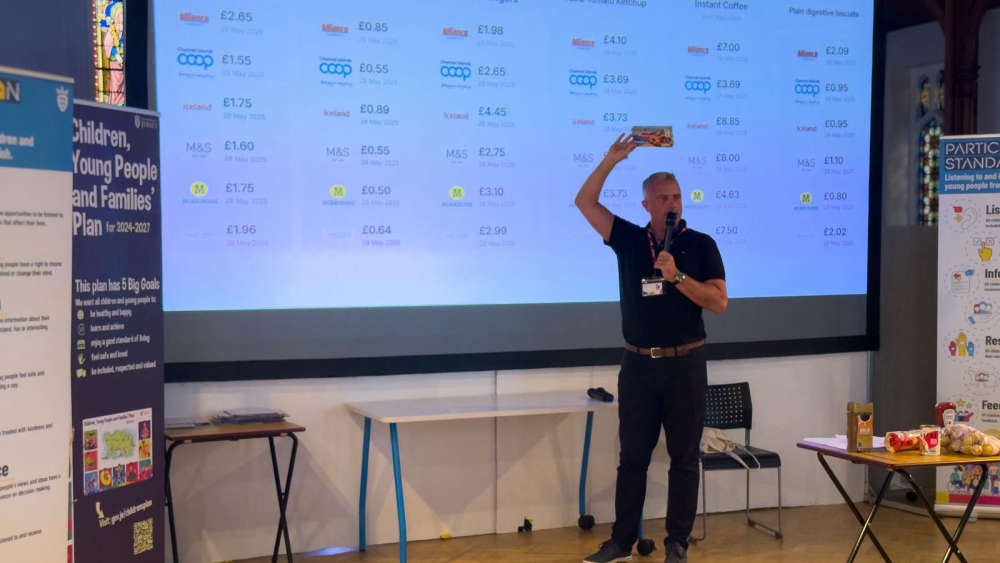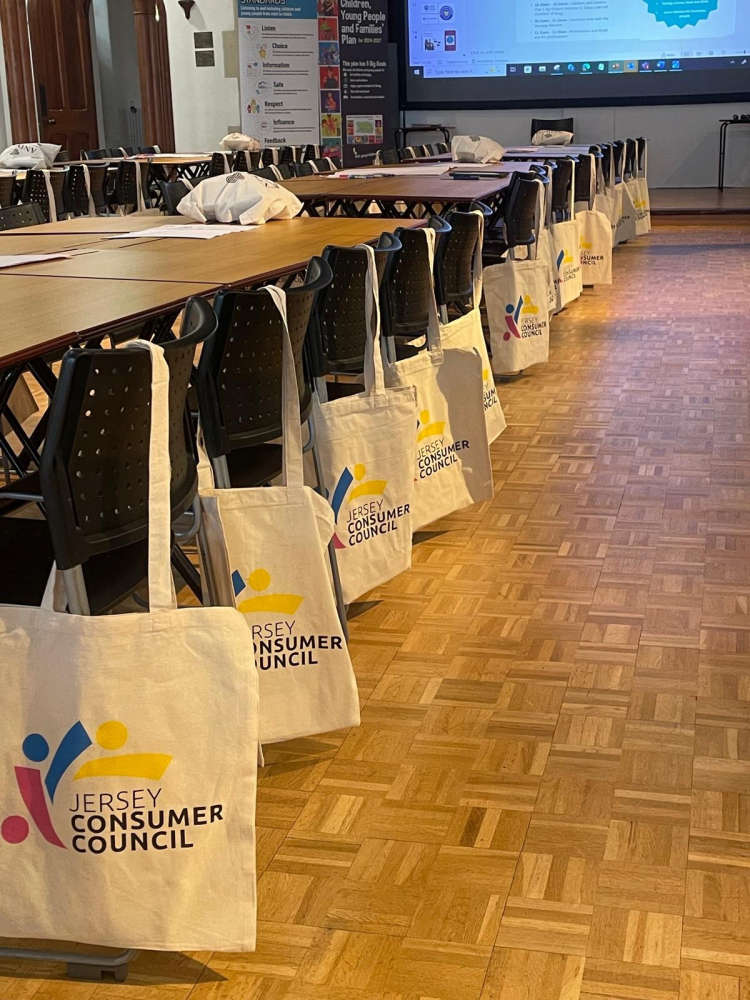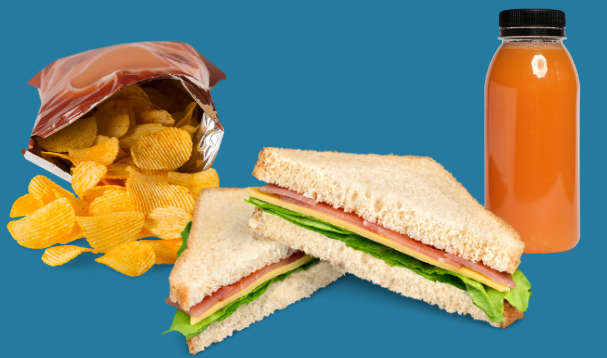
Did you know that in a recent survey of young people in Jersey, “cheaper housing and food” was listed as one of their top priorities?
Last week we visited Highlands College to run a workshop with over 100 students, and encouraged them to explore just how much money could be saved on everyday groceries simply by shopping around. The results were so surprising that we felt they needed to be shared more widely.
The session took place in front of the School Council Network — a forum made up of elected student council members from schools across the Island. To demonstrate the power of price awareness, we pulled six everyday grocery items out of a carrier bag. We told the students that I’d gone shopping with £25, intending to cook a basic dinner and hopefully still have enough left over to catch a film at the cinema. But what we showed them next was a wake-up call.
The bag contained six basic items:
- A 1.5kg–2.5kg bag of potatoes
- A box of 10 fish fingers
- A standard tin of baked beans
- A 460ml–500ml bottle of Heinz Ketchup
- A 200g jar of instant coffee
- A 300g–450g pack of digestive biscuits
All of these items were either own-brand or the cheapest version available — except for the Heinz Ketchup, which was chosen specifically to reflect a popular branded product. We explained that we had purchased these items at their highest available price from across local retailers. The total? An eye-watering £23.03. Yes — nearly all of my £25 spent on just six grocery items, leaving barely enough for a cinema ticket, let alone anything else.
The students were then challenged to go through real price data, gathered from prices.je, to see how much cheaper the same basket could be by making smarter choices. With a little discussion, lots of teamwork, and some enthusiastic problem-solving, the students managed to re-price the same six items for just £11.42 — an incredible saving of £11.61.
The exercise was fun, but it also had a serious message: if you can save over £11 on just six items, imagine the potential savings on a full week’s shop. The takeaway? Being an informed consumer pays.

At the Jersey Consumer Council, we’re not suggesting that people spend hours each week driving between supermarkets to hunt for the lowest prices on every single item. But being aware of where key items — especially the more expensive or frequently used ones — are sold at lower prices can make a real difference to your weekly budget.
With the rising cost of living continuing to be a concern for many, especially young people starting to manage their own budgets, these small changes can add up quickly. We encourage everyone to use resources like Prices.je to stay informed and shop smart — your wallet will thank you.


 Lunch meal deals: where’s the best value?
Lunch meal deals: where’s the best value?
 Coop members approve 2% "divvy" payments for a second year
Coop members approve 2% "divvy" payments for a second year
 Lower Coop "divvy" payments proposed for a second year
Lower Coop "divvy" payments proposed for a second year